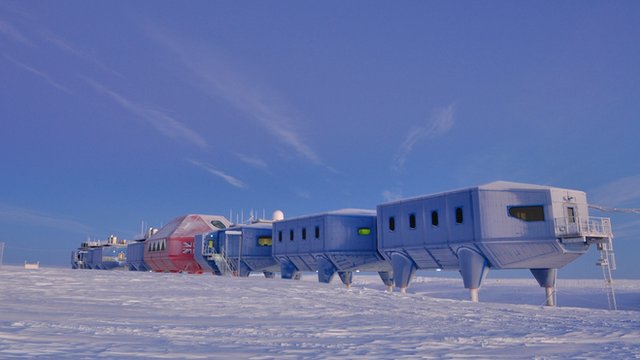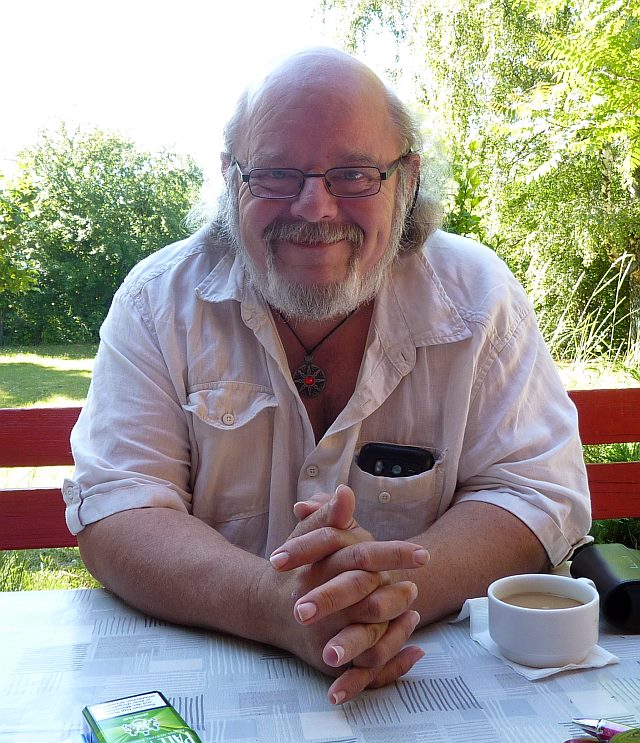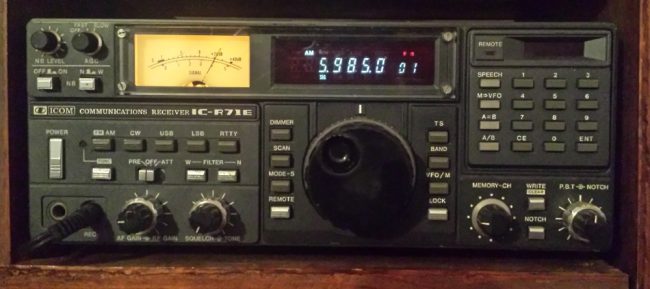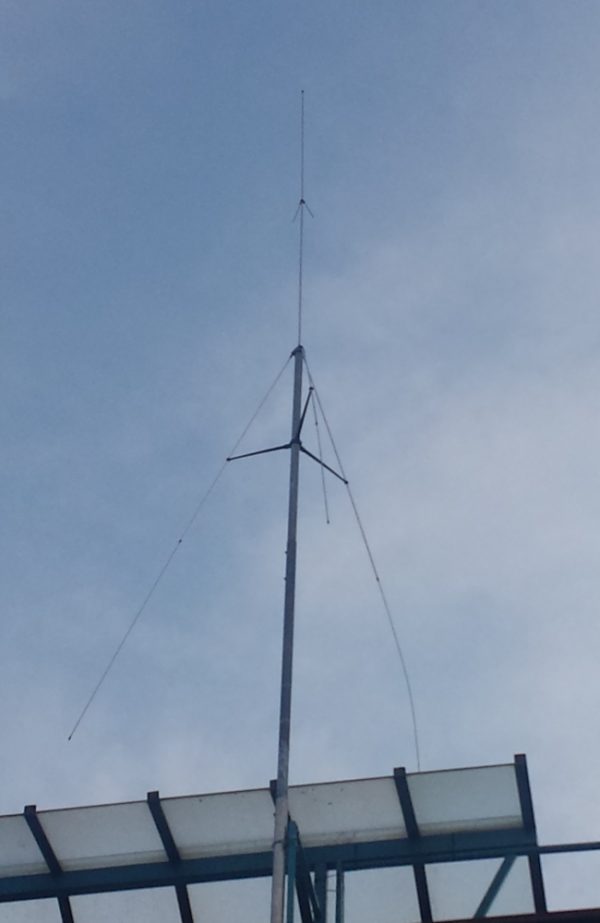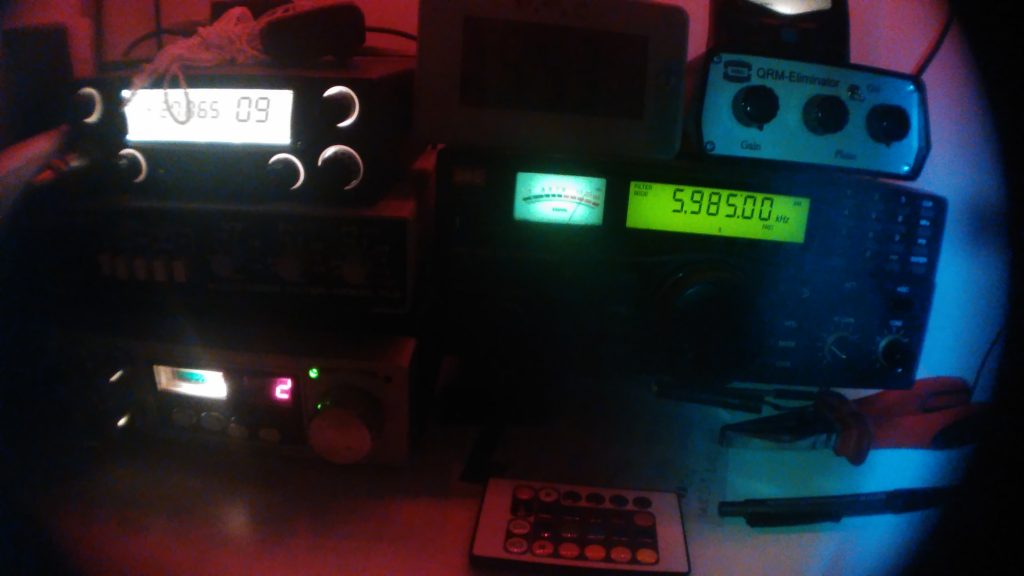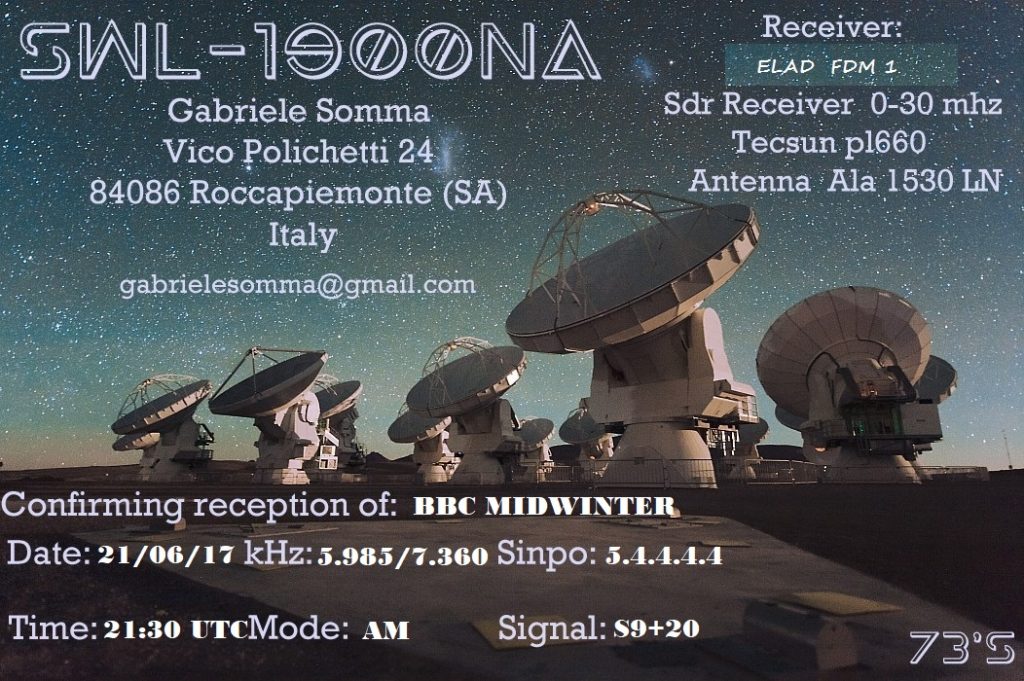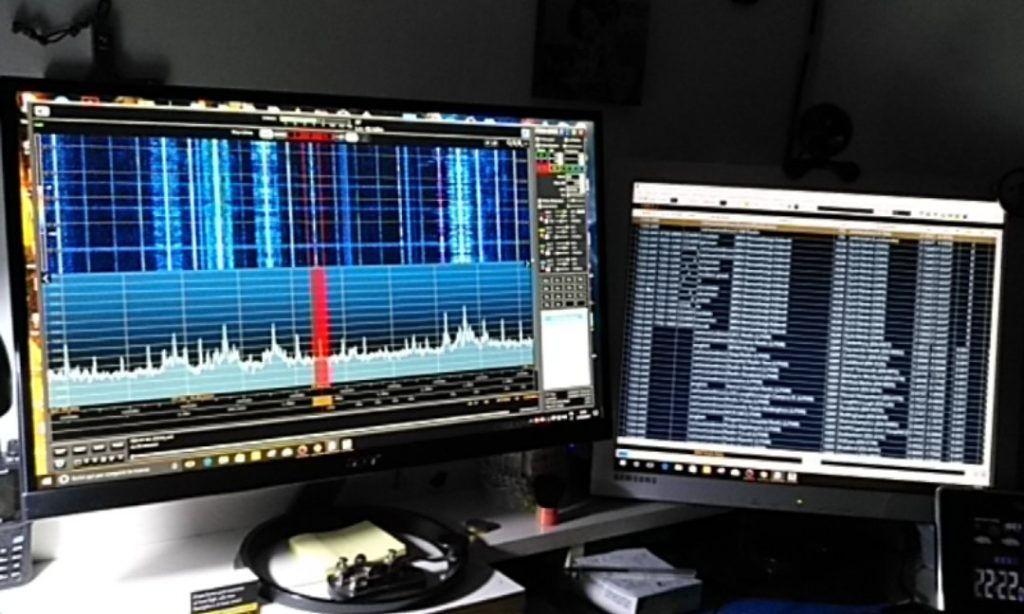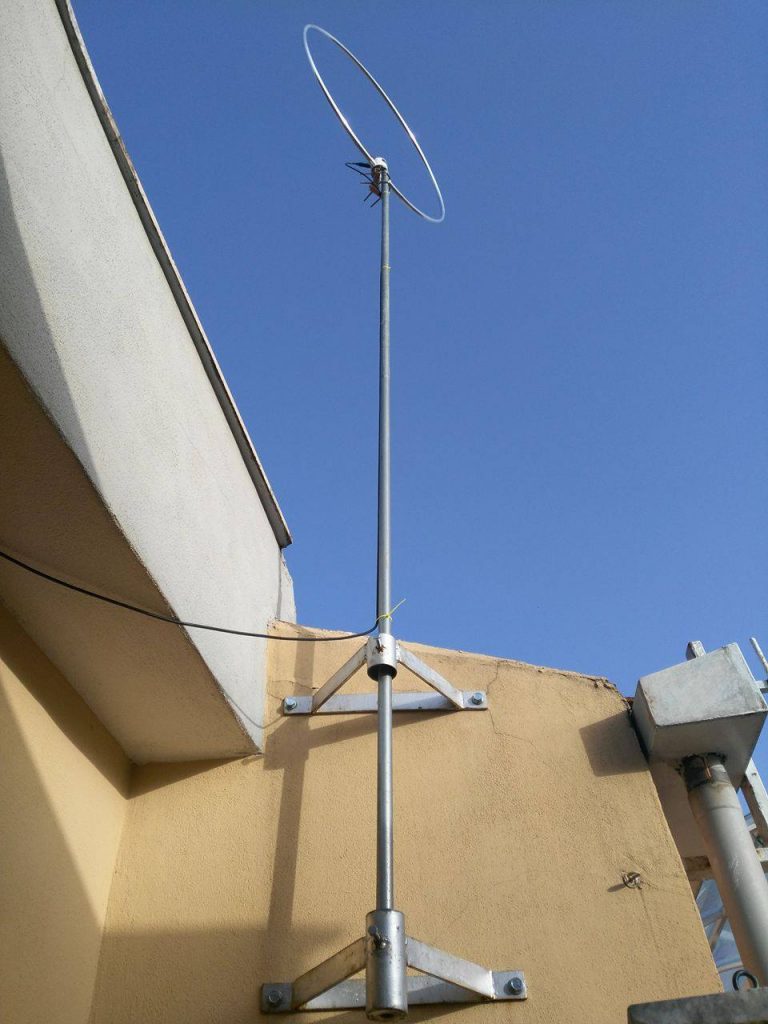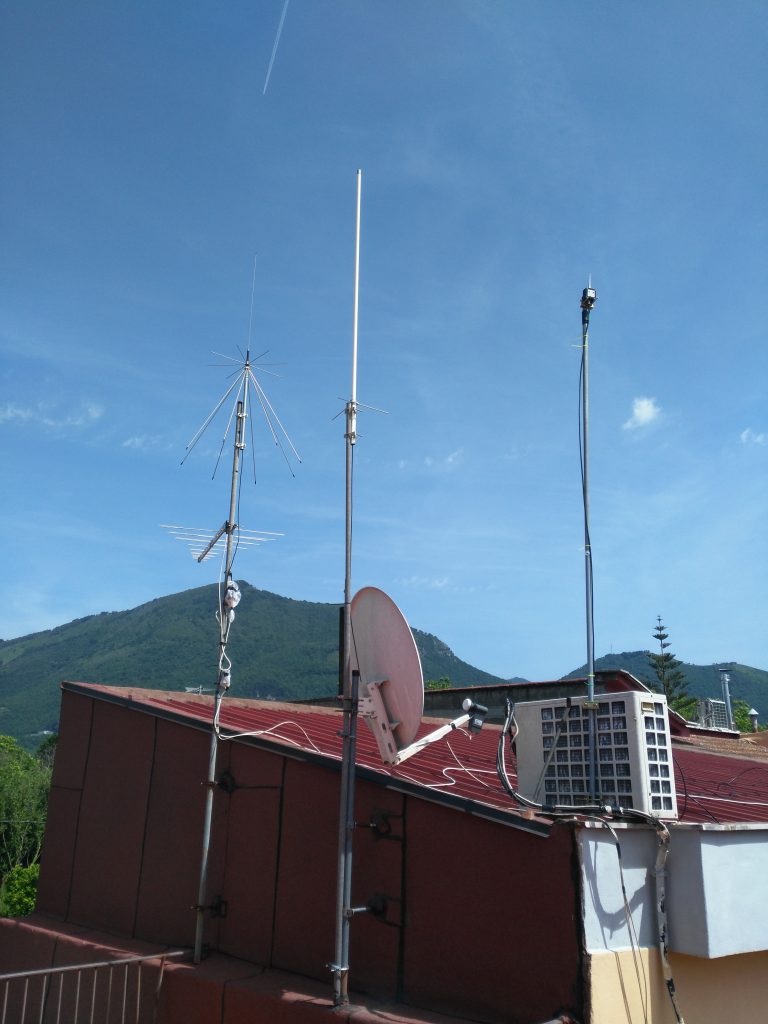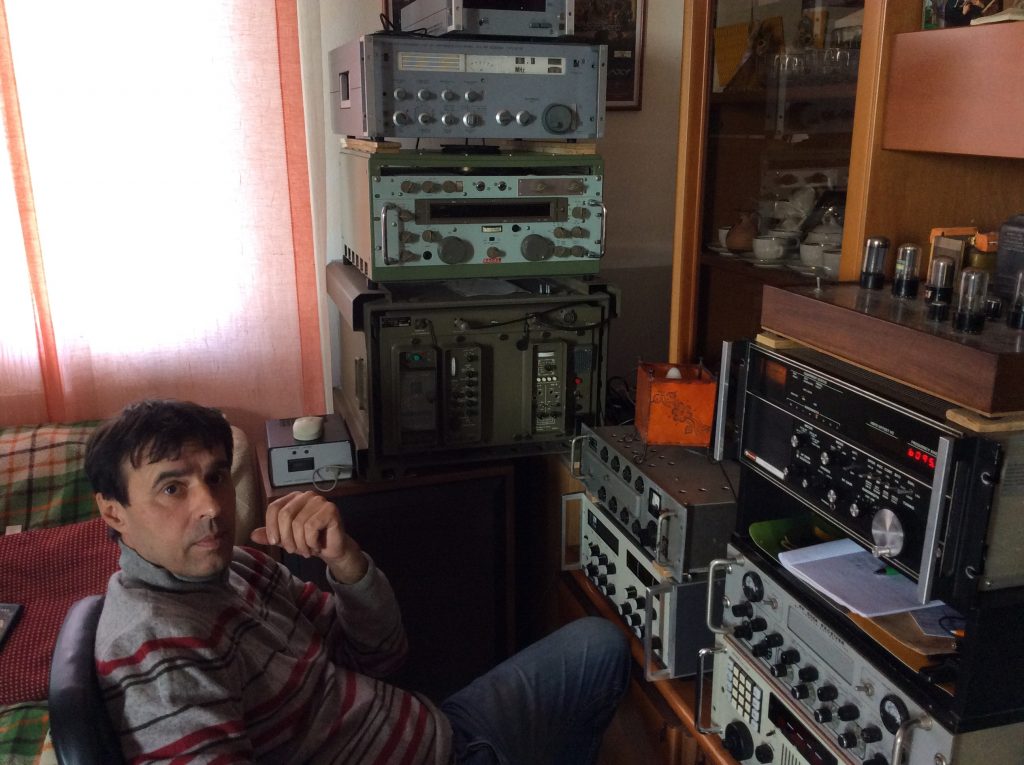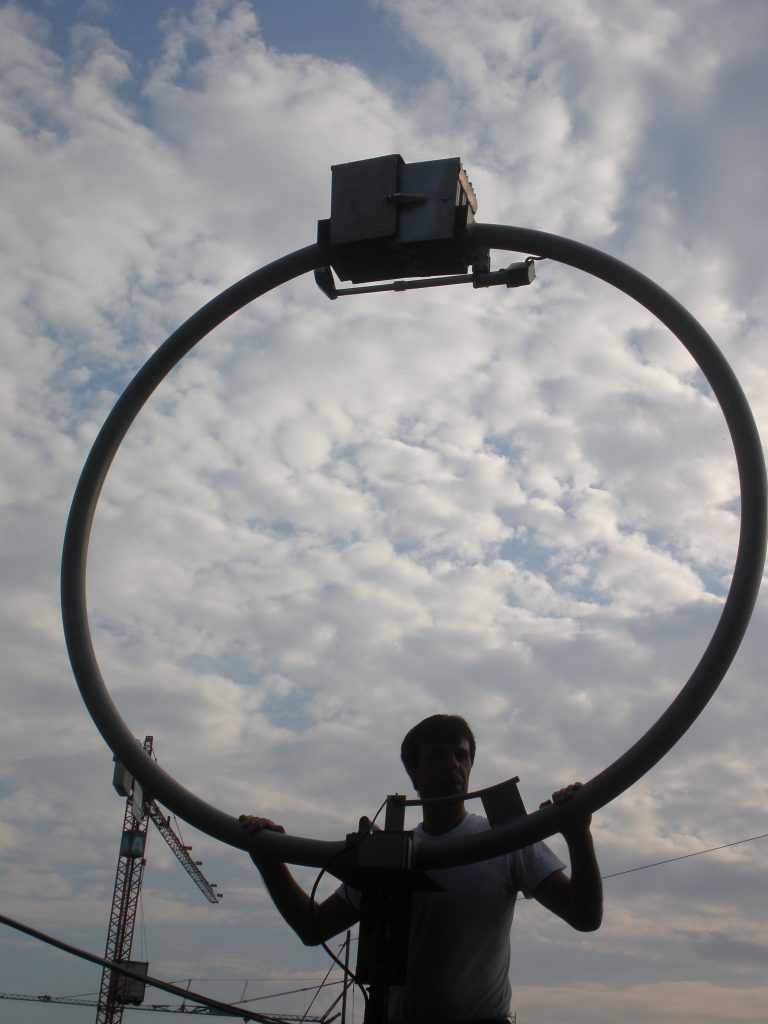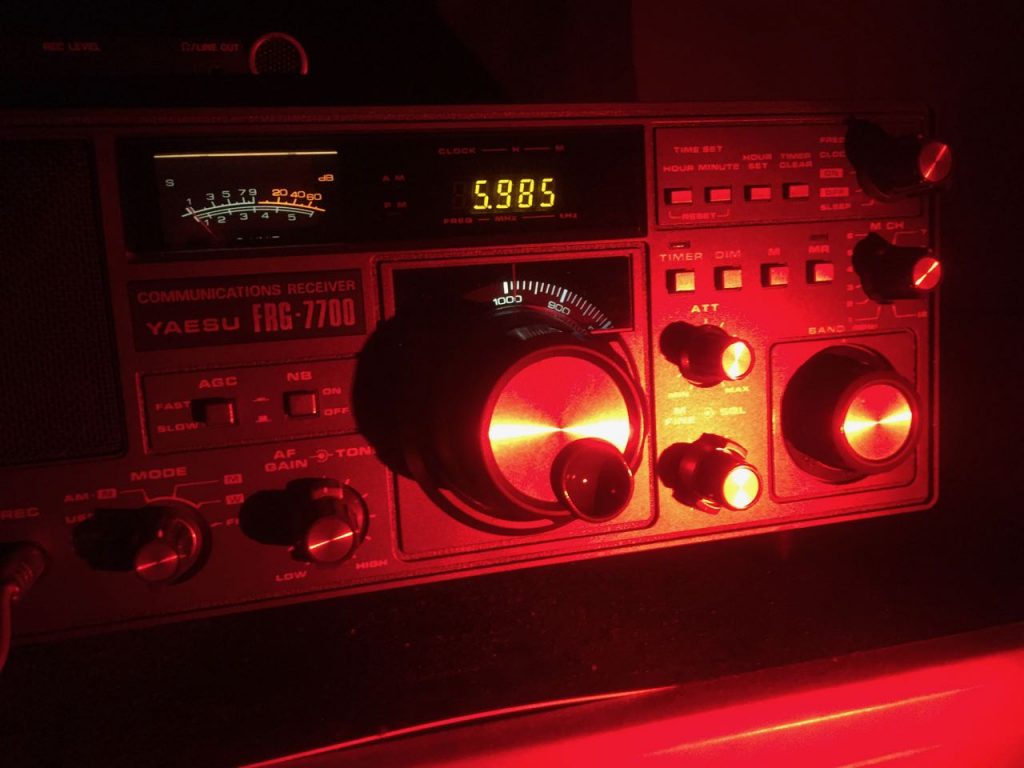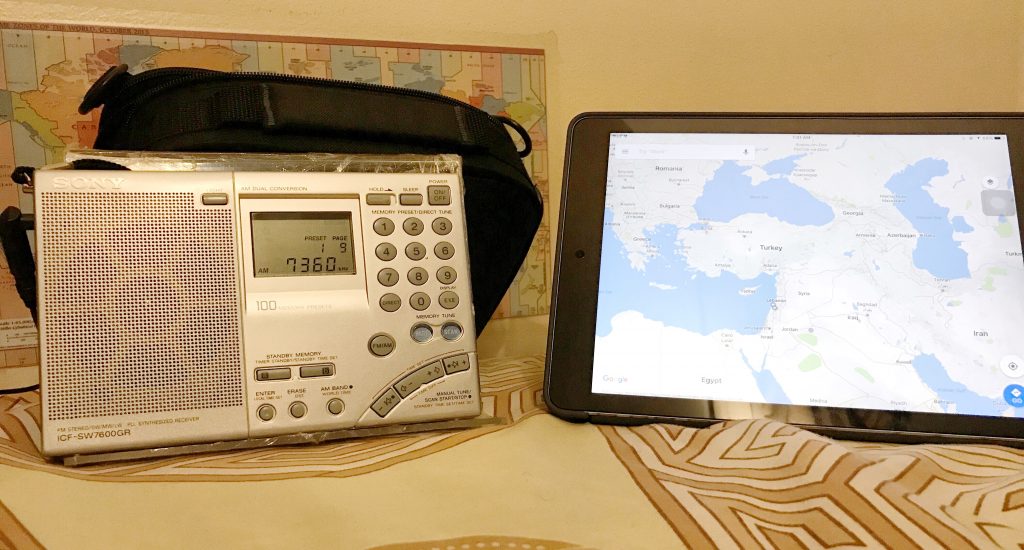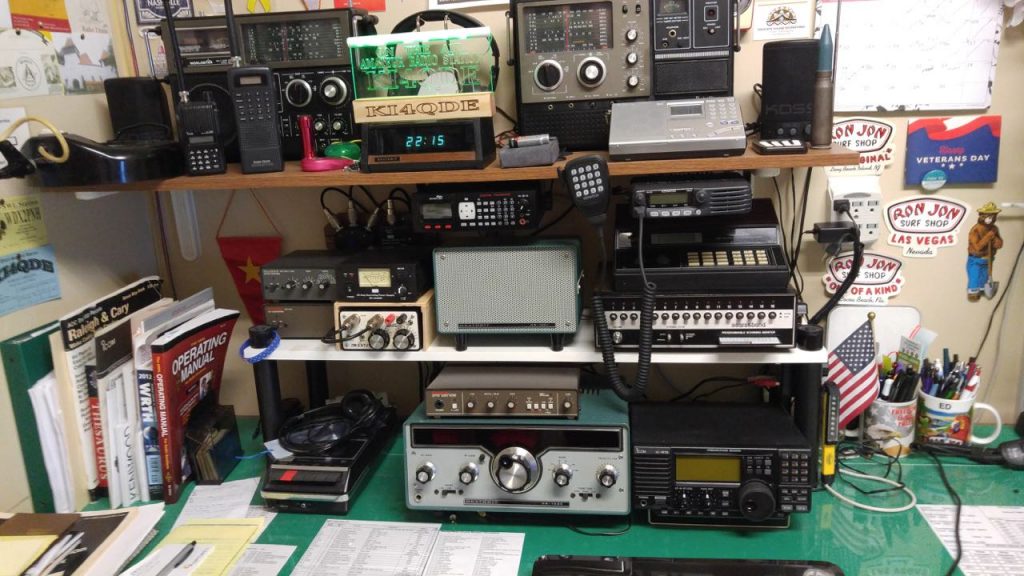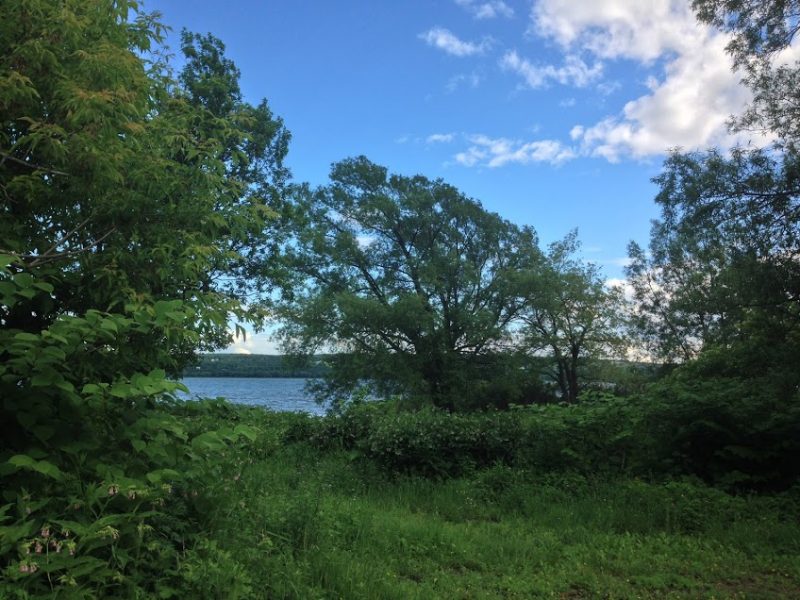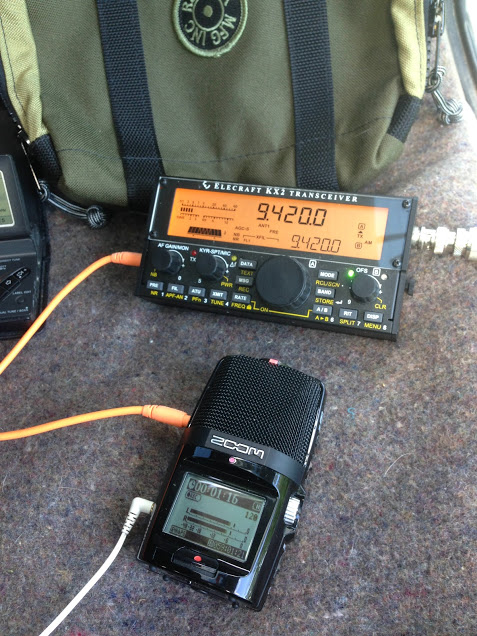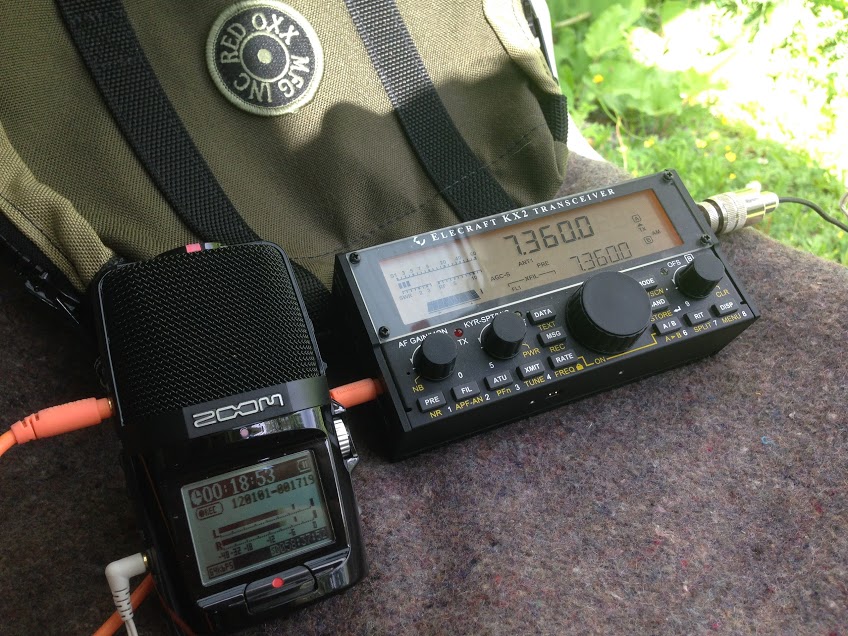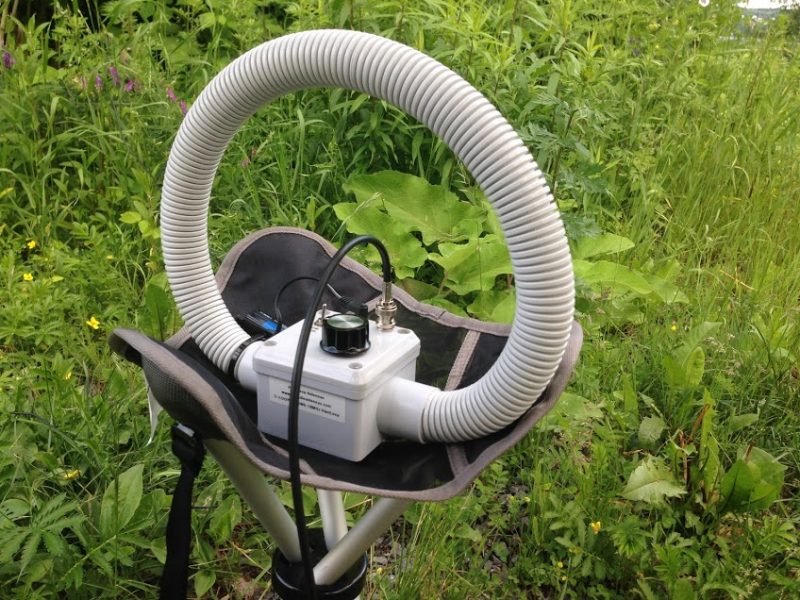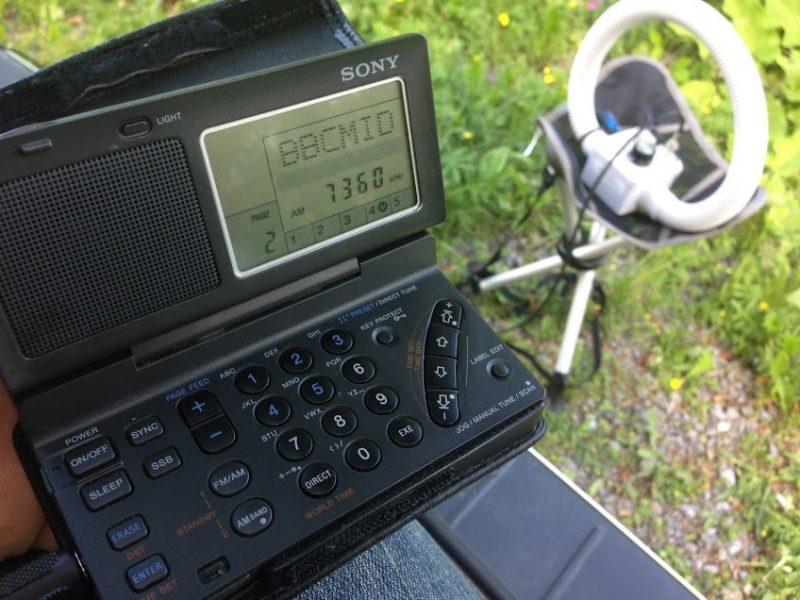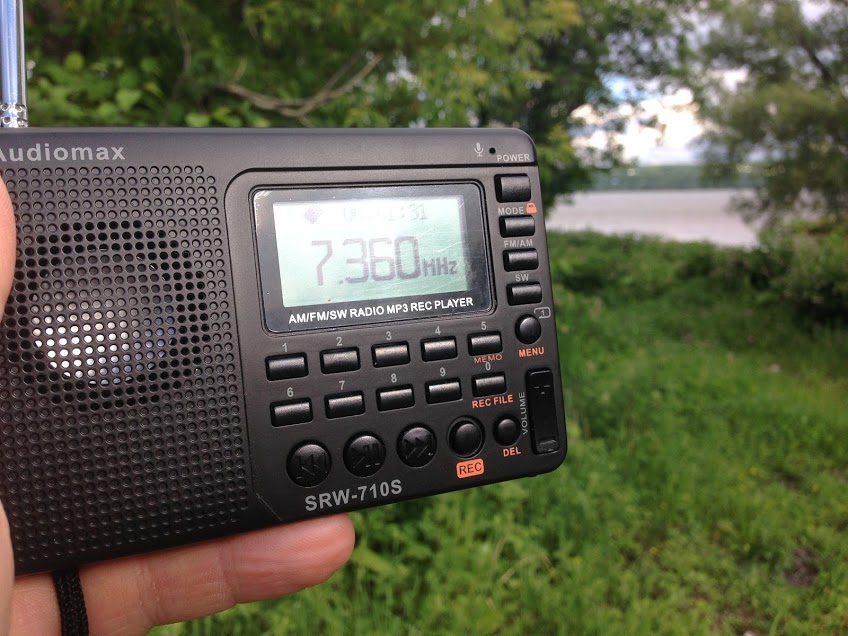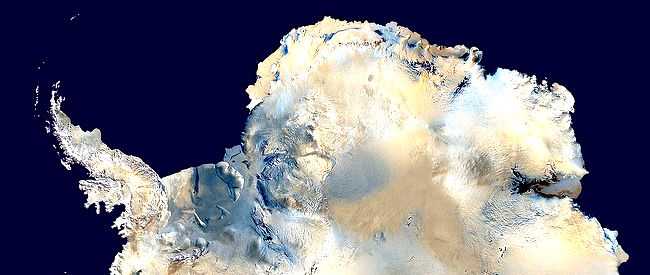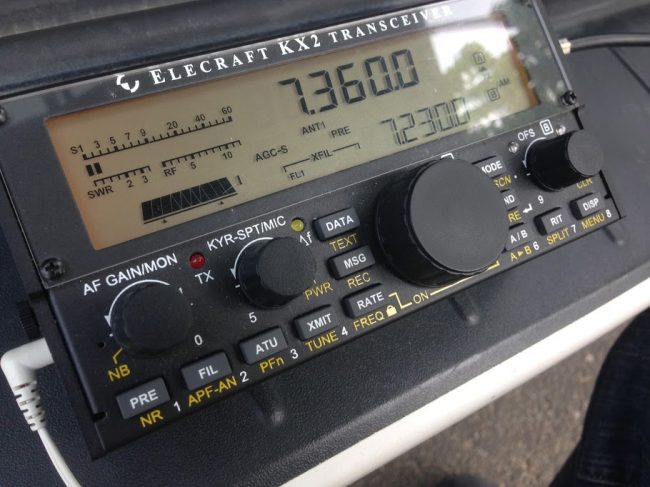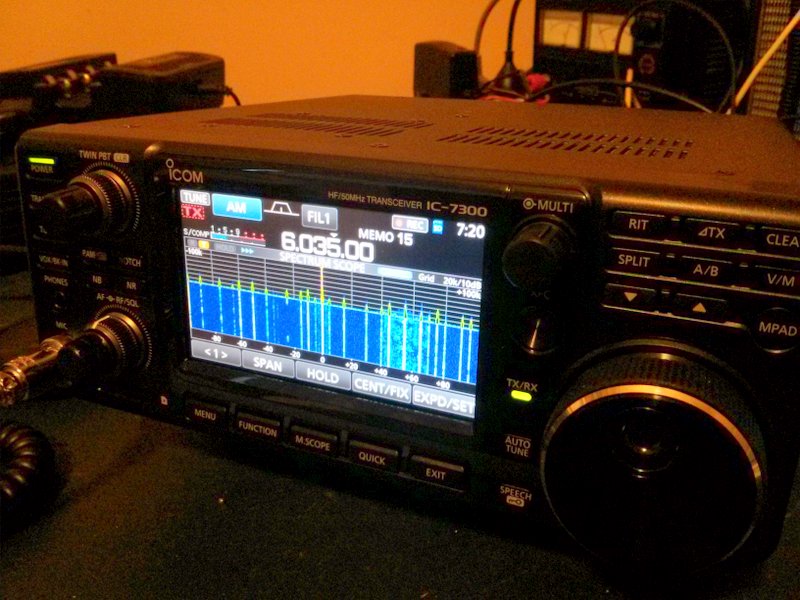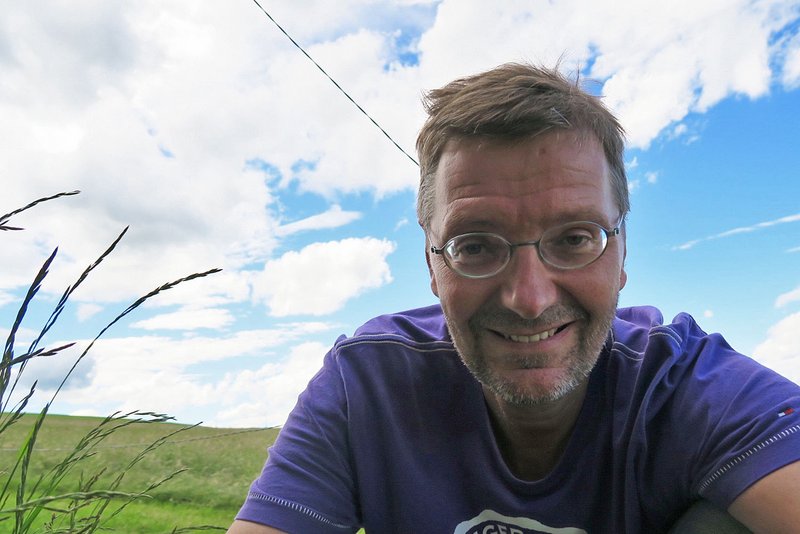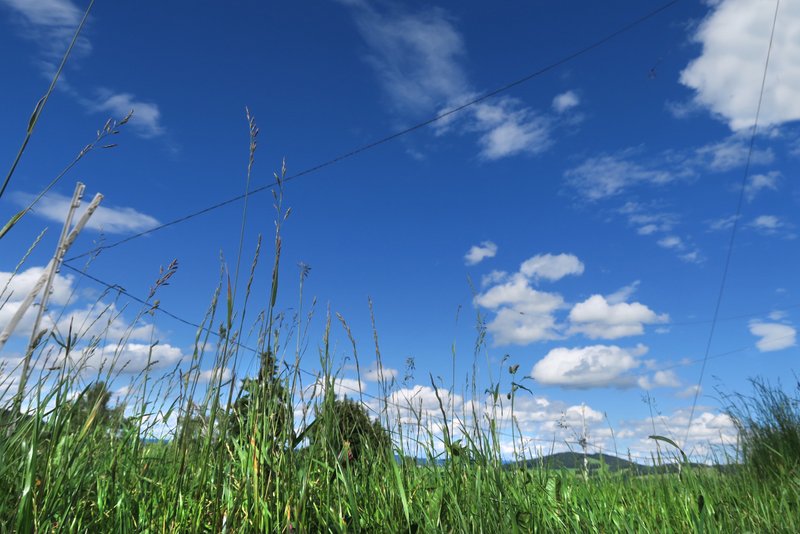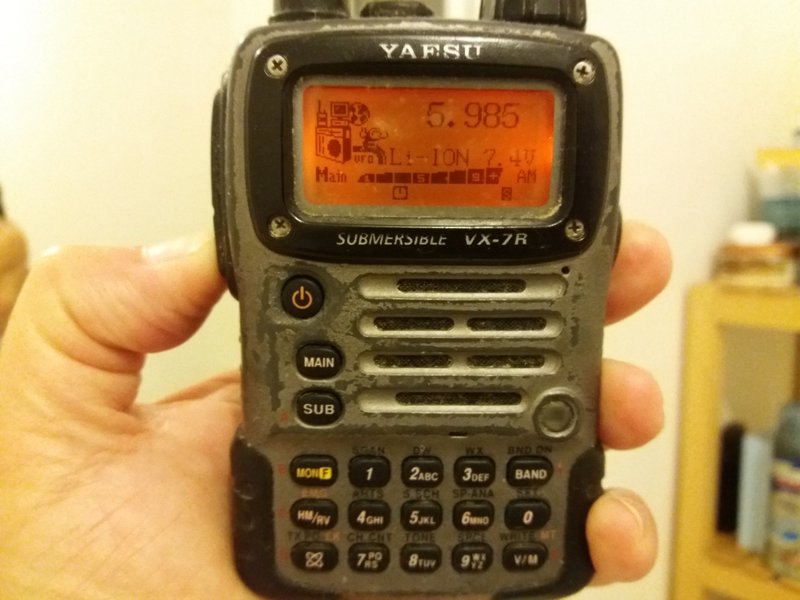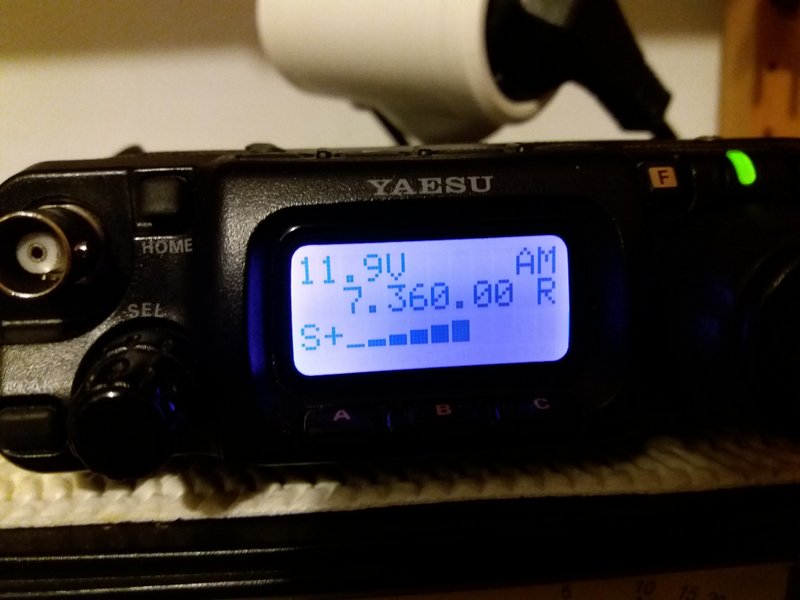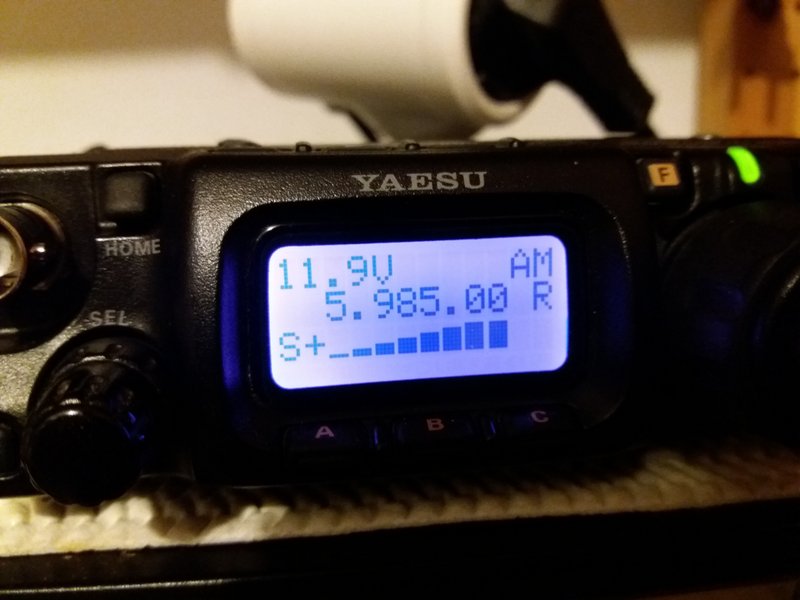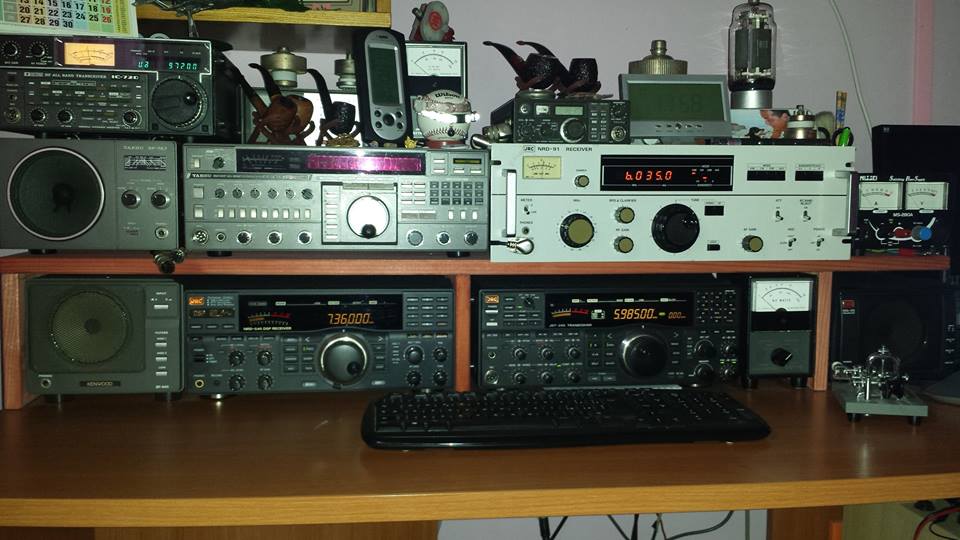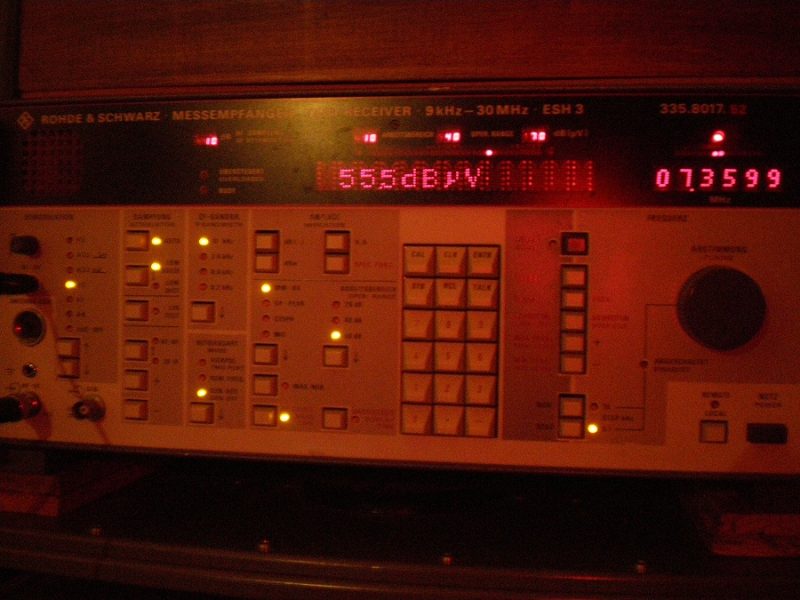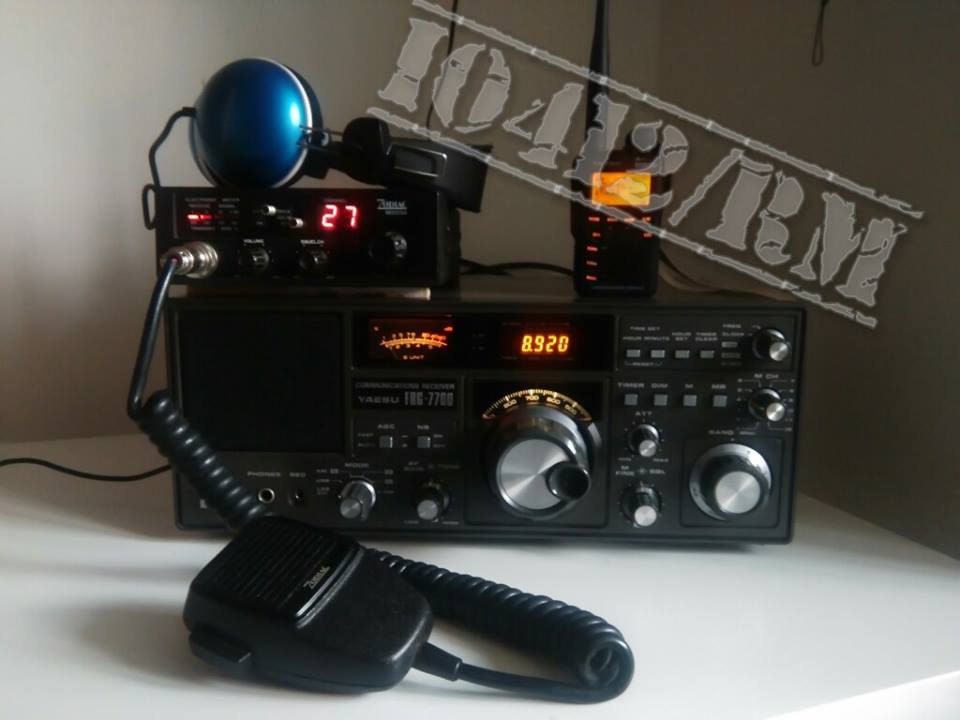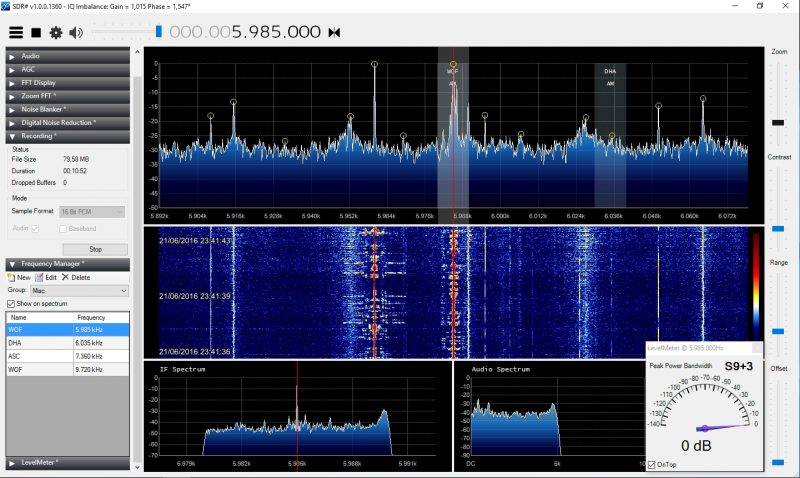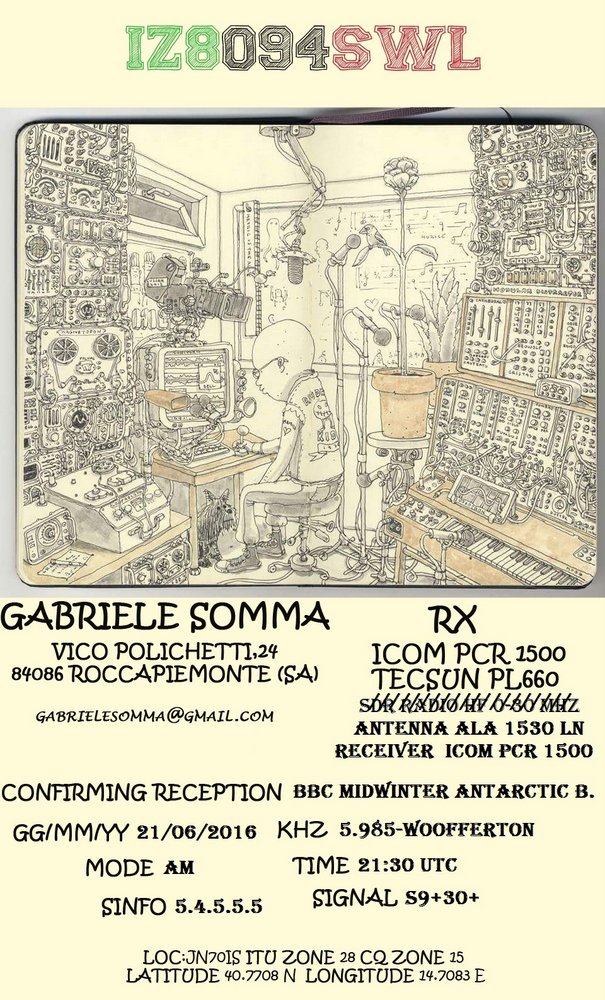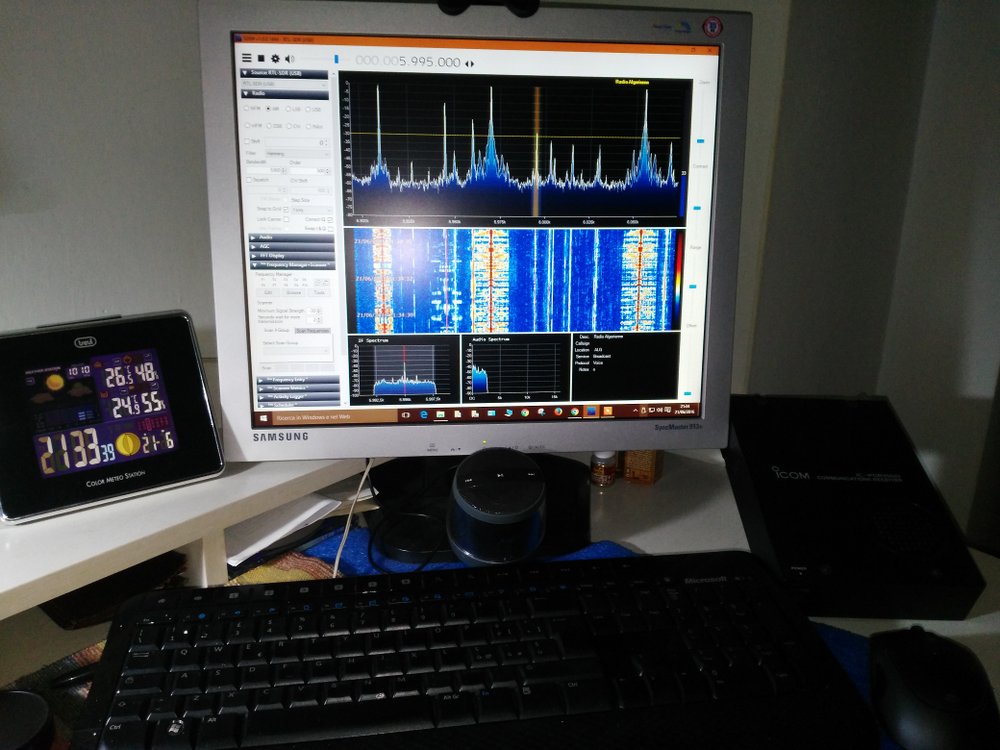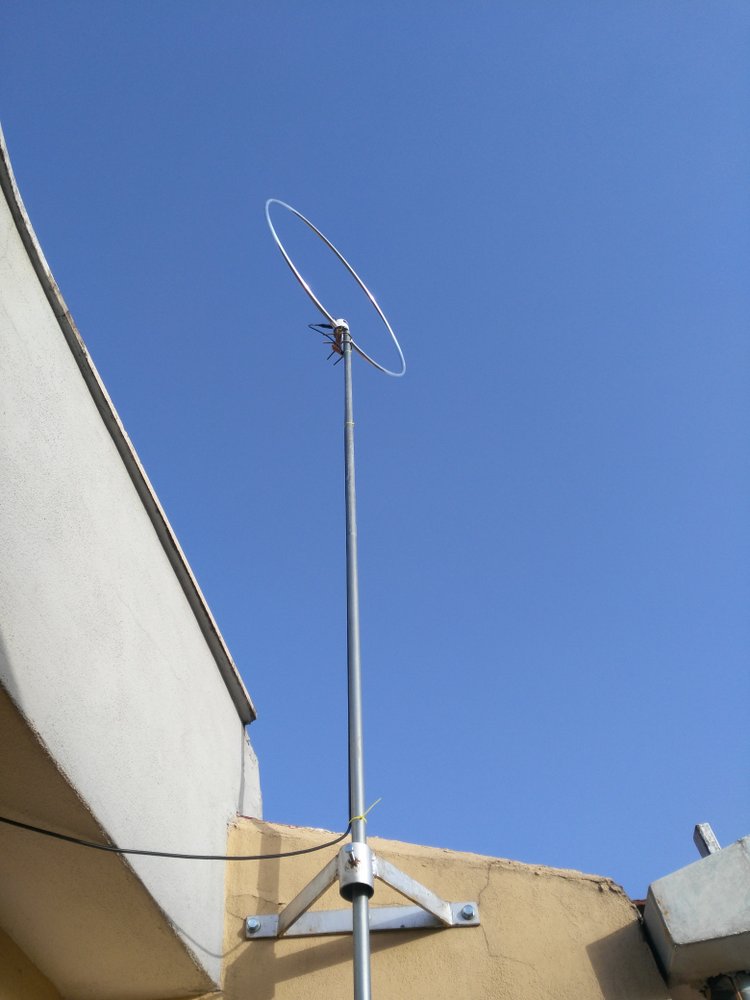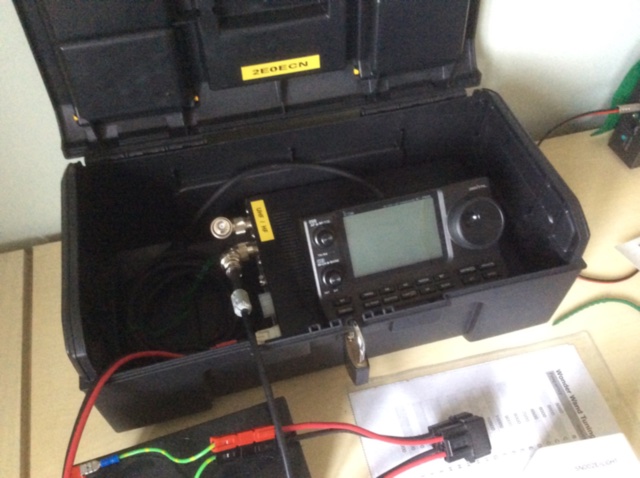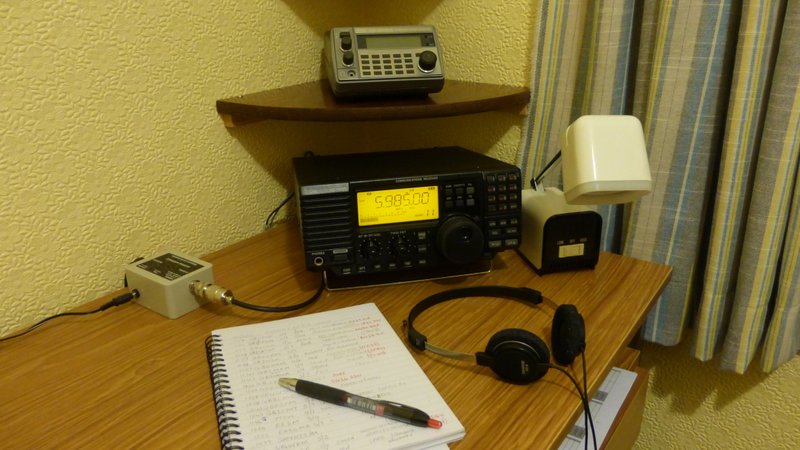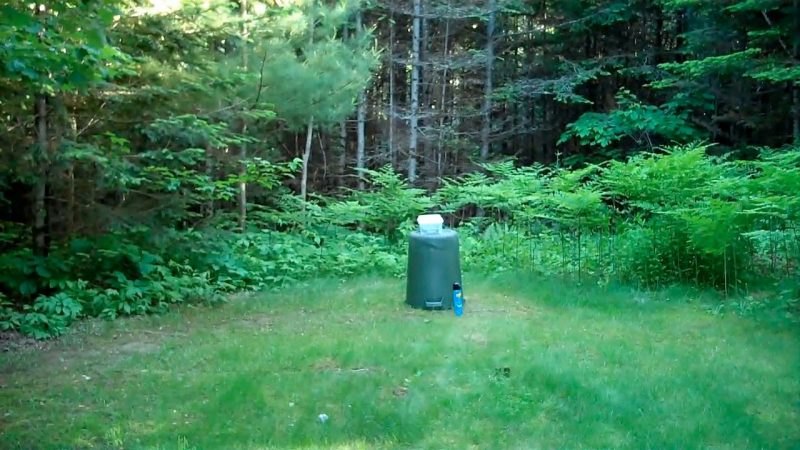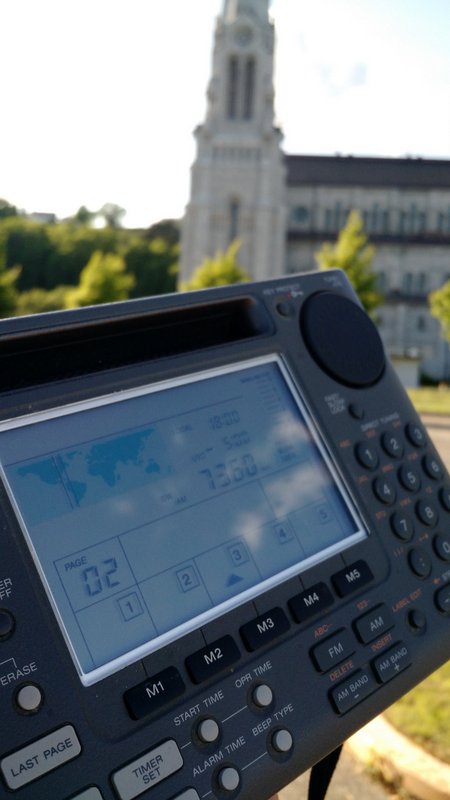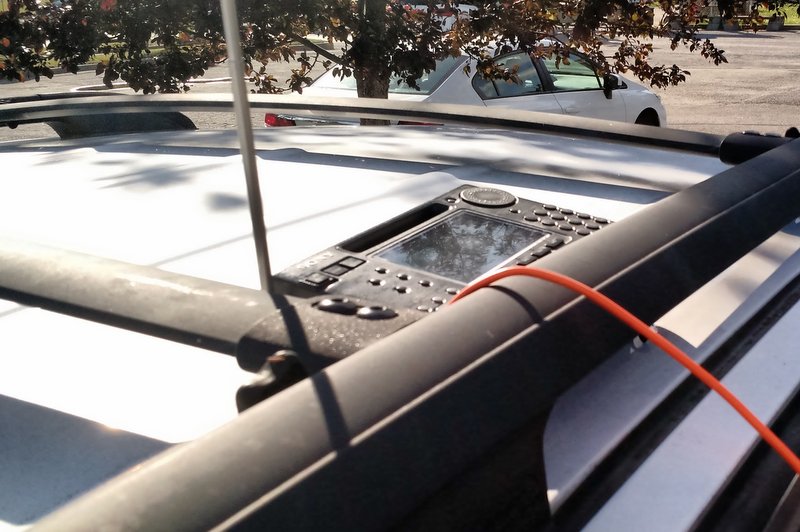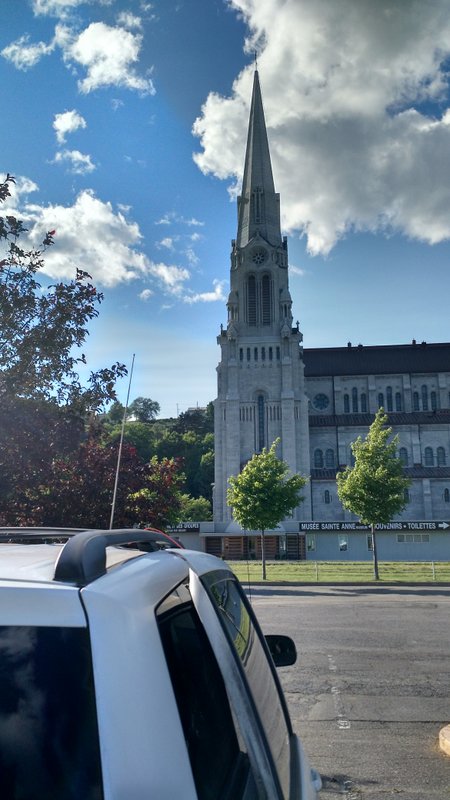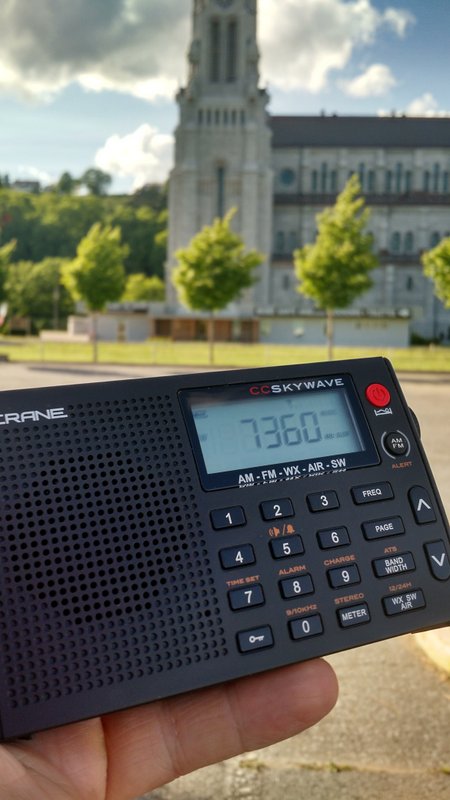On Wednesday, 21 June 2017, the BBC World Service officially transmitted the 2017 BBC Antarctic Midwinter Broadcast–an international radio broadcast intended for a small group of scientists, technicians, and support staff who work for the British Antarctic Survey.
This is one of my favorite annual broadcasts, and I endeavor to listen every year. Once again, the SWLing Post called upon readers to make a short recording of the broadcast from their locale.
Below are the entries, roughly organized by continent and country/region, including reader’s photos if provided. If I’ve somehow missed including your entry, please contact me; I’ll amend this post.
So, without further ado….
The 2017 BBC Antarctic Midwinter Broadcast Recordings
Europe
Denmark
SWL: Willy, OZ4ZT
Location: Copenhagen, Denmark
Notes: Here is a short recording of BBC AMB on 5985kHz. It was recorded using the IC 7300’s internal record function. Antenna used was a dipole for 7MHz.
France
SWL: Philippe
Location: Brest, France
Notes: Very strong on 5985 kHz. Weaker on 7360 kHz.
Click here to view on YouTube.
Germany
SWL: Klaus Boecker
Location: JN49AC in Germany
Notes: Attached please find the link to my reception Video of the 2017 Midwinter broadcast. and a photo. Just failed the first seconds, because I’ve muted my headphones and was wondering why I couldn’t hear anything. Hihi.
For the reception, I used my good, old Kenwood R1000 and my homebrewed mag-loop.
Recorded via soundcard and processed with Audacity. The Video later on is done with the NCH VideoPad Software.
Click here to view on YouTube.
SWL: Tony Roper
Location: Ruhpolding, Germany
Notes: 2017 BBC Antarctic Midwinter Broadcast being received on my Tecsun PL-660 whilst in Ruhpolding, Germany. Antenna was just the supplied wire hanging vertically from the window. Wasn’t expecting much due to the surrounding hills but was pleased to pick up the Ascension transmitter.
Click here to view on YouTube.
Italy
SWL: Daniele Forleo
Location: Puglia, Italy
Notes: This is my recording of the midwinter Antarctic broadcast, recorded in Puglia (Southern Italy) with Tecsun PL-660 with Its whip antenna.
SWL: Marc Vittorini
Location: Turin, Italy
Notes: Even this year I had the pleasure of listening the BBC ANTARCTIC MIDWINTER BROADCAST TRANSMISSION and I send you the listening report.
My name: Marc Vittorini
Loc: Favria (Turin) – Italy – JN35UH
Rx: Icom IC-R71E
Ant: Midland Skylab
Freq: 5985 kHz
Time: 2330-2400 utc
Signal: 9+20 with fading
I attach the recording of the first minute of the transmission received and also pictures of my receiver (during reception) and my antenna.
Unfortunately the first 20 seconds of recording are disturbed by noise due to an error in connection between receiver and recorder.
SWL: Alessio Proietti
Location: Rome, Italy
Notes: Receiver: JRC NRD 345.
Antenna: 30 Mt Longwire
Frequency: 5985 KHz AM very strong signal s9+30 perfect reception!
Click here to view on YouTube.
SWL: Giuseppe Morlè iz0gzw
Location: Formia, Italy
Notes: I used the Tecsun PL-660 with its telescopic antenna and only on Dhabbayya frequency 6035 I had a bit of difficulty. I’m on my home balcony in Formia, Center Italy, Tyrrenian sea.
Click here to view on YouTube.
SWL: Grabriele Sommas
Location: Roccapiemonte, Italy
Notes: Below is a video of my MIDWINTER reception–I listened to the 5,985 and 7,360 frequencies. Included are photos of my shack and antennas:
SWL: Andrea Coloru (IW3IAB)
Location: Italy (locator JN55XI)
Notes: I used an AOR 1500 with a long wire antenna (about 40 meters). My QTH locator is JN55XI and best frequency was 5985 kHz. There was light overlap by an RTTY station but reception was loud and clear. Other frequencies were bad, too much fading or unreadable.
SWL: Davide Borroni
Location: Saronno, Italy
Notes: I listened BBC Midwinter with SINPO 34333 on 6035 kHz AM Thanks for show !
I use my Hallicrafters receiver R45 ARR7 and Siemens E401 , magnetic loop antenna:
Click here to view on YouTube.
Click here to view on YouTube.
SWL: Enrico CIULLA
Location: Poggio Rusco, Italy
Notes:
I was curious to listen this transmission and Wednesday I tried to receive it with a little Tecsun PL-300wt and its antenna. My QTH is impossible for electric noise (I live in a flat on a bank with alarm, neon, and so on) but I listened the transmission on 6035 khz SINPO 24131 (quite inaudible), on 7360 kHz SINPO 34232 so I’ve listen on 5985 kHz SINPO 44333 (in record attached with ID), I’ve listen transmission from 21:30 to 21:50.
SWL: Renato IK0OZK
Location: Marta, Italy
Notes: Signal Report: S 9+10 to Woofferton at 5.985 Khz and Ascension on 7.360 Khz, S 5-7 to Dhabayya on 6.035 kHz. QTH: Marta VT Italy Grid: jn52xm
Reception setup: Receiver JRC NRD 545 Dsp, JRC NRD 91, Watkins & Johnson 8718-9, Elad FDM S-2. Antenna: Wellbrook Loop ALA 1530 Lf.
Ascension recording:
Receiver: JRC 545 DSP UTC 21.30
Click here to view on YouTube.
Receiver: WJ 8718-9 UTC 21.48
Click here to view on YouTube.
Dhabayya
Receiver: JRC NRD 91 UTC 21.47
Click here to view on YouTube.
Woofferton
Receiver Elad FDM S-2 UTC 21.33
Click here to view on YouTube.
Link to post on my radio-blog:
http://ik0ozk-radio.blogspot.it/2017/06/antartic-midwinter-transmission-2017.html
Reception not possible on 7.230 !! Very big interference from China Radio International.
Malta
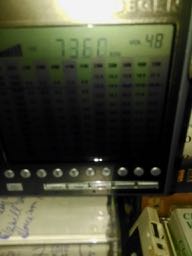 SWL: Adrian
SWL: Adrian
Location: Malta
Notes:
Listened from Malta to the BBC tests, of the four frequencies two were good.
7360 kHz SINPO 54554-53553 and 5985 kHz SINPO 54554.
The other two SINPO 33333 using a Degen DE1103 with a longwire antenna 27 meters long at 23.30-23.45 CET .
Sending also photo and recording .
Greetings from Malta.
Netherlands
SWL: Leen
Location: Netherlands
Notes: Recorded using a JRC NRD-535D and Wellbrook 1530 mag loop antenna
Russia
SWL: Pavel Ivanov
Location: Belgorod City, Russia
Notes: Reception area: Belgorod city, Russia. Receiver: Tecsun PL-680. Antenna: long wire – 12 met.
Click here to view on YouTube.
United Kingdom
SWL: Cap Tux
Location: Scotland
Notes: BBC World Service Antarctic Midwinter Broadcast 2017. Cerys Matthews (Catatonia) presents music requests and special messages to the staff at the British Antarctic Survey, broadcasting in English, June 21 2017, 2130-2200 GMT on 5985 kHz (transmitter power of 300kW, transmitter location: Woofferton, UK).
Recorded with an SDRPlay RSP2 using SDRuno and a homebrew passive Mag Loop.
SWL: Ayrshire, Scotland
Location: Scotland
Notes:
Tonight I rushed home from work in time to hear the broadcast. Signals were good at my QTH in Scotland, even though we had thunder storms to the East of Scotland.
I made several (shaky) videos on my smart phone. As you will see from the videos, my receivers are more of the classic/old type, but reception was good with my home made antennas.
Details of my receivers, antennas and location are on the youtube videos.
I have posted one of reception from Wooferton on 5985 kHz Am, and one of
reception from Ascension on 7360 kHz AM.
I also heard Dhabayya with a good readable signal, but the first two were the best signals best with me.
Click here to view on YouTube.
Click here to view on YouTube.
SWL: Mark Hirst
Location: Basingstoke, England
Notes: Please find enclosed a short extract from yesterday’s broadcast, plus a picture of the radio used just before the programme started. Again it was so interesting to hear a broadcast aimed to such a small audience with heartfelt messages from their friends and family.
Saudi Arabia
SWL: Rawad Hamwi
Location: Turaif – Northern Borders Province – Saudi Arabia
Notes:
[Wednesday] I tried listening to the BBC Antarctica Midwinter Broadcast (for the first time) from northern Saudi Arabia and really I enjoy it so much! All the 3 frequencies were loud and clear but the most audible one was 5985 kHz
I filmed the entire 30 min broadcast and the video is uploaded on YouTube
Click here to view on YouTube.
Here are some details I included in the video description
Date/Time: 21/6/2017@21:30 UTC | 22/6/2017@00:30 Arabia Standard Time (UTC+3)
Frequencies: 7360 kHz – 6035 kHz – 5985 kHz
Receiver: Sony ICF 7600GR
Antenna: 30 LM Longwire Antenna
Location: Turaif – Northern Borders Province – Saudi Arabia
North America
Canada
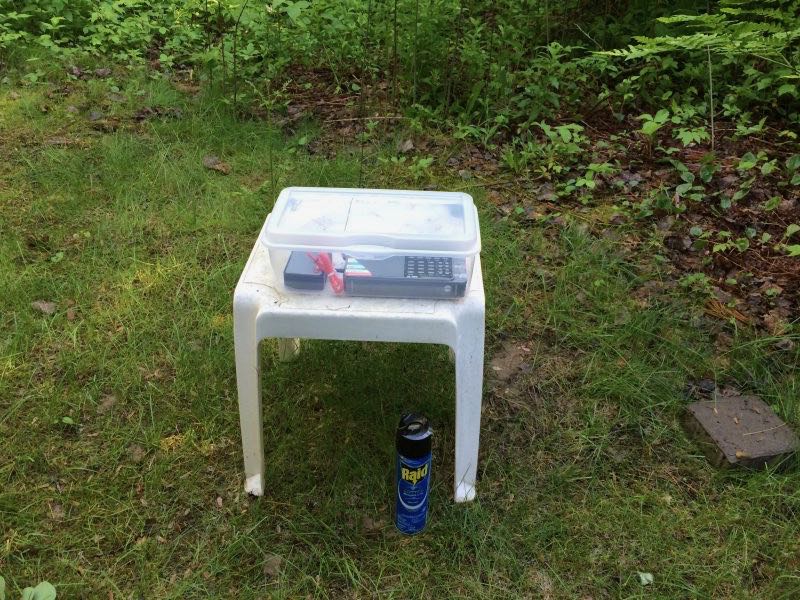 SWL: Richard Langley
SWL: Richard Langley
Location: New Brunswick
Notes:
I had good luck with recording the BAS broadcast both here and using the U. Twente receiver. Attached are two two-minute clips, one from the start of each recording. Also attached [above] is a photo of the “listening post” at the back of my yard.
Via U Twente WebSDR:
Click here to download the MP3.
Home recording with PL-880:
Click here to download the MP3.
You can hear my full half-hour recordings on the Shortwave Radio Audio Archive.
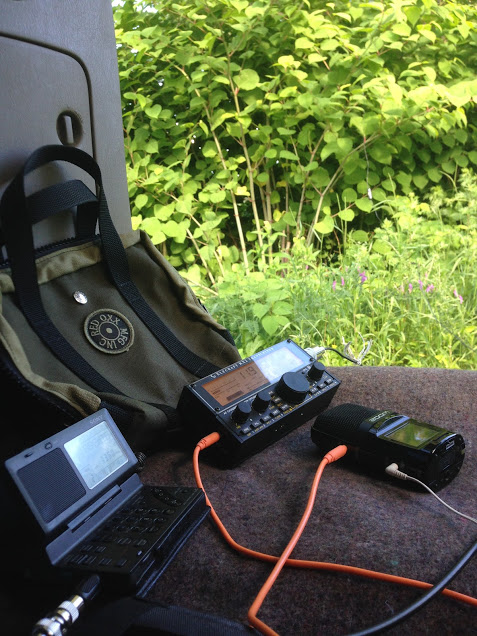
Listening to the 2017 BBC Antarctic Midwinter Broadcast from the back of my vehicle in Saint-Anne-de-Beaupré, Québec, Canada.
SWL: Thomas Witherspoon (K4SWL/VE2)
Location: Sainte-Anne-de-Beaupré, Québec
Notes:
I made a field recording of the Midwinter broadcast from an access point along the north shore of the St-Lawrence river. I used two receivers:
The Sony ICF-SW100 which I hooked up to my portable PK Loop mag loop antenna.
The Elecraft KX2 which I hooked up to a NASA PA 30 multi-band compact wire antenna that I suspended in a tree.
None of the frequencies used for the Midwinter broadcast were ideal for my location and time of day (after all, these broadcasts target Antarctica!) but last year I did successfully receive the 41 meter band broadcast.
The KX2/NASA PA 30 provided the best reception results, but sadly the recording turned out quite poor due to an incorrect setting on my Zoom H2N digital recorder.
Fortunately, I did make the following video of my Sony ICF-SW100 in action:
Click here to view on YouTube.
Read my full Midwinter report from the field by clicking here.
United States
SWL: Paul Walker
Location: Erie, Pennsylvania
Notes: Tecsun PL-880, DX Engineering HF preamp and Doxytronics tuneable loop
Click here to view on YouTube.
SWL: Ed McCorry (KI4QDE)
Location: North Carolina
Notes: Attached are 2 audio clips of the broadcast. Both on 7360 from Ascension.
I could not hear anything on the other frequencies.
SWL: Nace Magner
Location: Bowling Green, Kentucky
Notes: I listened to the signal on 7360 kHz from the back porch of my home in Bowling Green, KY. I used a 35′ end-fed external antenna located about 20′ up in a tree. I received a similar quality signal using the external antenna with a Kaito 1103 radio. I also received the signal on the Kaito using only its whip, although the signal was substantially weaker.
Thank you for your excellent work on the SWLing Post.
Click here to view on YouTube.
SWL: Jon Pott
Location: Michigan
Notes: My first attempt at catching the Midwinter broadcast; I wasn’t expecting to pick up anything at all, but the Ascension Island location came through well enough that I could positively identify it when I compared to BBC’s recorded broadcast.
Recording of my reception (the beginning of the recording corresponds approximately to the 4:00 mark in the BBC recording below).
Location was western Michigan in the U.S.
42°46’40” N
86°03’48” W
Elevation: Approx. 212m ASL
Click here to listen via Clyp.
South America
Argentina
SWL: David Iurescia (LW4DAF)
Location: Argentina
Notes: I’m sending you the first seconds of the BBC Antarctic Midwinter Broadcast, using a Yaesu FT 840 and a half wave dipole, 30 Km south from Buenos Aires.
It is on 7360 Khz. It had good signal, but too much noise here.
Wow–Thank you!
Once again, many thanks to all of you who submitted your recordings of the BBC Midwinter Broadcast!
We’ll be sharing this post with both the British Antarctic Survey and the BBC World Service. And to all of you, from the SWLing Post: Happy Midwinter! Happy Summer/Winter Solstice!

